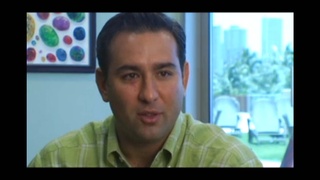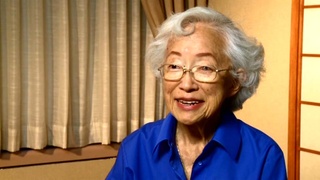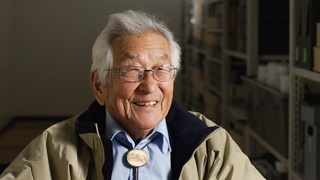Interviews
Getting good guidance
The doctor that my father had – his name was Dr. William J. Norris and he was on the staff at Children’s Hospital and Good Samaritan. And so – he was very kind – and one time I asked him, when I was older, I said,” I’d like to be a doctor.” And so he says,” Oh, if you do I can help you all I can.” Never did he say that, because you’re a woman…
So anyway, so I applied to medical school and at SC they didn’t take any the first year, and the second year they took 2 women so then I went to Chicago. And…I applied to Stritch Loyola and they accepted 4 women - one from San Franciso, and myself and 2 from Illinois.
So then, I kept in touch with this…my father’s doctor and so when I graduated, I said,” I think I’d like to be a surgeon.” And he says,” well - he used to call me Sake – Sake,” he says,” as a woman,” hey says,” surgery will be very difficult because you’d have to depend on men to refer cases to you. And so if I were you, I’d do family practice and see how you like it and if you still want to go into surgery I’ll do everything to help you.”
So I went into general practice and I liked it, cause I tooked care of – as I always say – skin and it’s contents, I took care of the children and mothers and did some surgery and all aspects of medicine at that time.
Date: March 31, 2005
Location: California, US
Interviewer: Gwenn M. Jensen
Contributed by: Watase Media Arts Center, Japanese American National Museum










